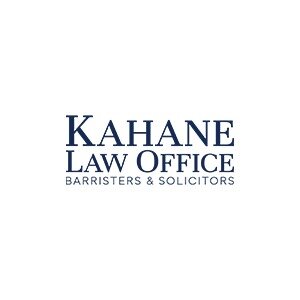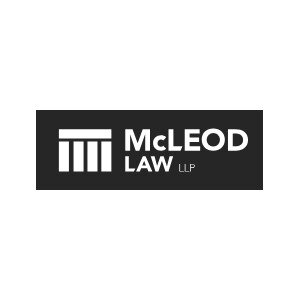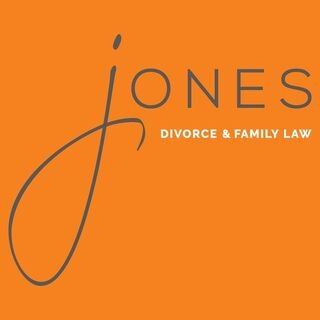Best Trusts Lawyers in Calgary
Share your needs with us, get contacted by law firms.
Free. Takes 2 min.
List of the best lawyers in Calgary, Canada
About Trusts Law in Calgary, Canada
Trusts law in Calgary, Canada, involves legal arrangements, where a trustee holds legal title to property for the benefit of others, referred to as beneficiaries. The Trust is governed by the Trustee Act of Alberta. Trusts in Calgary can be either revocable (can be changed or terminated by the settlor) or irrevocable (cannot be changed or terminated). They can be established during a person's lifetime (Living Trust) or after death (Testamentary Trust). Trusts are commonly used for estate planning, protecting assets, and reducing potential tax liability.
Why You May Need a Lawyer
Setting up a Trust involves complex legal procedures and intense paperwork, which could be hard to understand without legal expertise. A lawyer can help in drafting and reviewing the Trust documents, ensuring legal compliance, and providing needed counsel on the best types of Trusts based on clients' needs. In case of disputes involving Trusts, a lawyer can offer representation. A lawyer can also offer advice on tax implications of establishing a Trust.
Local Laws Overview
Calgary, being part of Alberta, follows the provincial laws laid out in the Trustee Act of Alberta. One critical law is that Trusts need to be in writing. Also, the settlor, trustee, and beneficiary can all be different people, but one person cannot be the only trustee and the only beneficiary. The trustee is obligated by law to act in the best interests of the beneficiary. The law also stipulates requirements regarding the accounting and reporting duties of the trustee. If a trust fails, depending on the type of trust, the property may revert to the settlor or the settlor's estate.
Frequently Asked Questions
1. What are the types of Trusts I can set up in Calgary?
You can setup Living Trusts, Testamentary Trusts, Family Trusts, or Charitable Trusts, each serving different purposes and offering varied advantages.
2. How long does it take to set up a Trust?
The time to set up a Trust depends on its complexity but generally, it can take several weeks to a few months.
3. What are the potential tax benefits of a Trust?
Trusts can help in income splitting to reduce taxes, preserving the lifetime capital gains exemption, and avoiding probate fees.
4. Can a Trust be dissolved?
Yes, Trusts can be dissolved due to various reasons such as completion of the Trust's purpose, by the settlor (if it’s a revocable Trust) or through a court order.
5. Who can be a trustee?
Any legally competent adult can serve as a trustee. They can be individuals (like family member or friend), professionals or corporations (like a trusted law firm).
Additional Resources
You might find the Alberta Law Libraries, Trustee Act of Alberta, and The Law Society of Alberta helpful. Local Trusts and Estate Law firms can also be a good source of information. Consider joining local legal forums and discussions, which can give you first-hand information from those who have experienced similar circumstances.
Next Steps
Should you need legal assistance in dealing with Trusts, seek to hire a lawyer specializing in Trusts and Estate law. Ensure they have a good reputation and adequate experience. Prepare a list of questions and necessary information regarding your assets and intentions for the trust before your legal consultation. Lastly, remember, setting up a Trust is a significant decision that can have long-term effects; thus, it's advisable to make informed decisions, which may involve seeking expert advice.
Lawzana helps you find the best lawyers and law firms in Calgary through a curated and pre-screened list of qualified legal professionals. Our platform offers rankings and detailed profiles of attorneys and law firms, allowing you to compare based on practice areas, including Trusts, experience, and client feedback.
Each profile includes a description of the firm's areas of practice, client reviews, team members and partners, year of establishment, spoken languages, office locations, contact information, social media presence, and any published articles or resources. Most firms on our platform speak English and are experienced in both local and international legal matters.
Get a quote from top-rated law firms in Calgary, Canada — quickly, securely, and without unnecessary hassle.
Disclaimer:
The information provided on this page is for general informational purposes only and does not constitute legal advice. While we strive to ensure the accuracy and relevance of the content, legal information may change over time, and interpretations of the law can vary. You should always consult with a qualified legal professional for advice specific to your situation.
We disclaim all liability for actions taken or not taken based on the content of this page. If you believe any information is incorrect or outdated, please contact us, and we will review and update it where appropriate.















